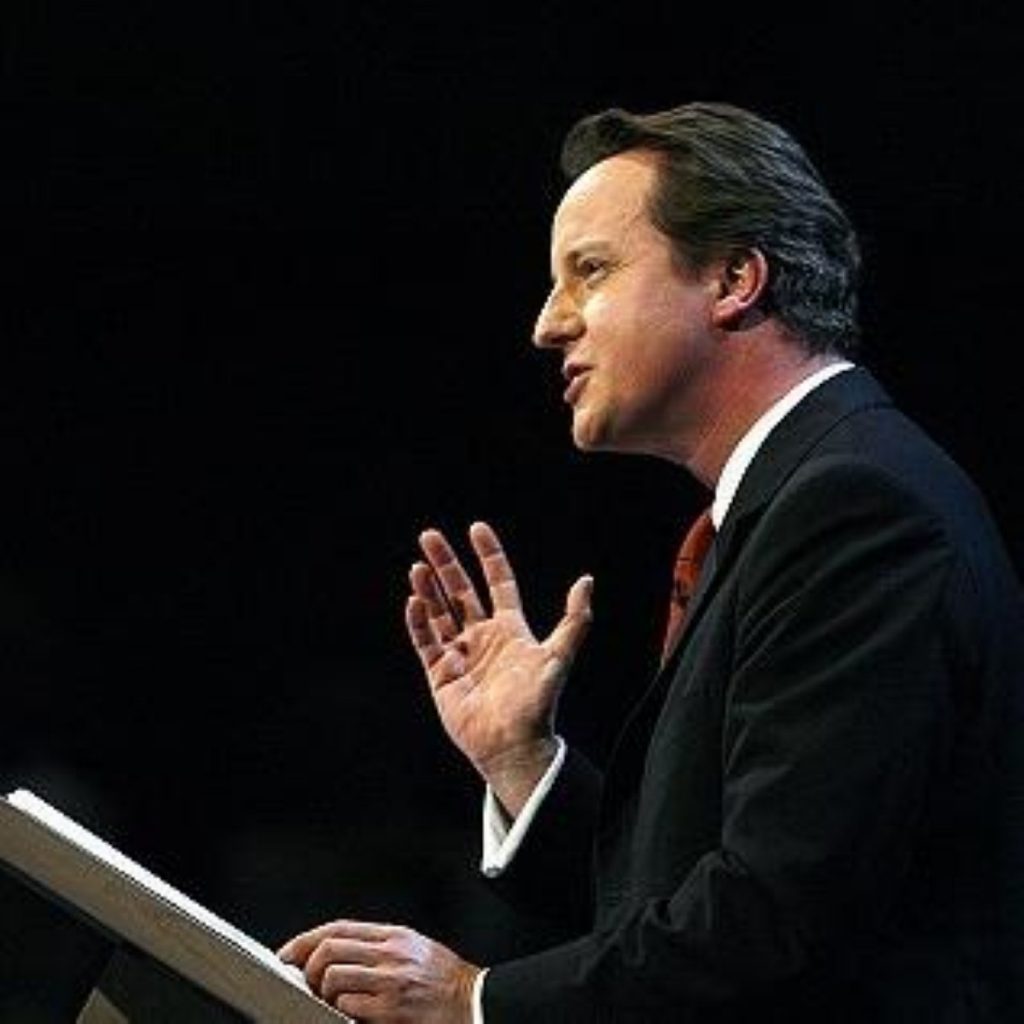‘No such thing as Cameronism’
David Cameron does not have a “coherent political philosophy” according to the director of thinktank Demos.
In an article for the Institute for Public Policy Research (IPPR), Richard Reeves analyses Mr Cameron’s statements since he became Conservative party leader and concludes: “Cameronism is certainly not an ideology, nor even – yet – a coherent political philosophy.”
The writer of a book on 19th Century philosopher John Stuart Mill, Mr Reeves then goes on to break down Mr Cameron’s beliefs.
“Cameronism displays a number of key features: it emphasises the pragmatic over the theoretical; takes an essentially optimistic view of human nature; favours the devolution, rather than centralisation, of power; stresses social, rather than economic, progress; and places more faith in society than in the state,” he argues.


“But Cameronism diverges most sharply from Thatcherism with its focus on social, rather than economic, matters.”
Mr Reeves highlights the strangeness of someone running to be prime minister on a campaign which stresses how little the government can do to help society.
He quotes from a speech Mr Cameron gave to the Royal Society for the encouragement of Arts, Manufactures and Commerce (RSA) last year in which he said parents, neighbours and employees had more power to improve society than the state.
Mr Reeves responds: “OK, Dave, that sounds great. Nobody can sensibly argue against a more socially responsible, civilised society.
“Labour would love to be able to cut the law and order budget following an outbreak of Humean humanity. But how – given that you, mostly correctly, suggest that the state can’t do it – are you going to lead us to this Brave Responsible World?
“Even before becoming PM, he is making a compelling argument for his own powerlessness at the head of government: real power lies in society,” he added.
“If elected, Cameron will be first prime minister from Britain’s ruling class for half a century – but one who proudly claims not to be able to rule.”
Mr Reeves also suggests Mr Cameron is opportunistic in his attacks on the government, with some contradictions in his ideas.
“Cameron verges on hypocrisy on the issue of state action,” he writes.
“He has set up a Young Adult Trust, which he says is ‘working in partnership
with many of Britain’s leading youth organisations, to develop plans for a national
programme for all 16-year-olds that helps teach them the responsibilities of adulthood’.
“A national programme to teach adulthood? If Ed Balls [schools secretary] announced it, the Tories would be turning it into a piece of ‘nanny state gone mad’ propaganda.
“Cameron is quite right that Labour is very often guilty of a knee-jerk statism, but he is equally at risk of an unthinking anti-statism,” he concludes.
Mr Cameron is currently touring target seats in the north-west.









